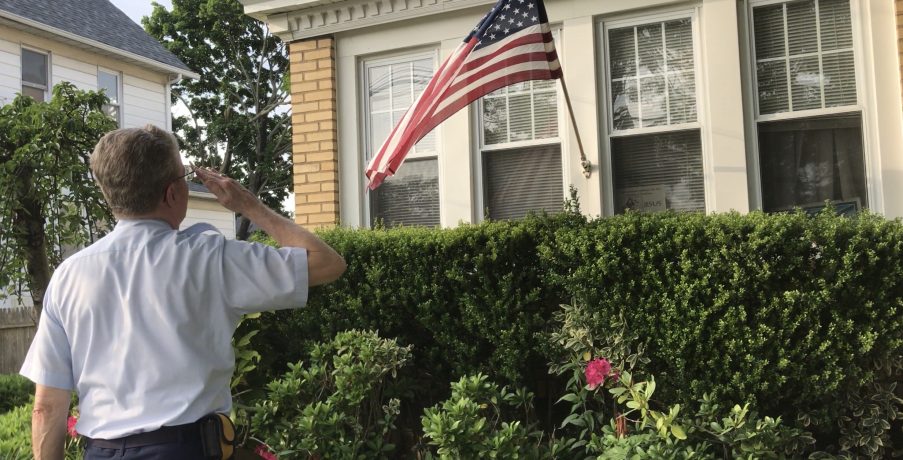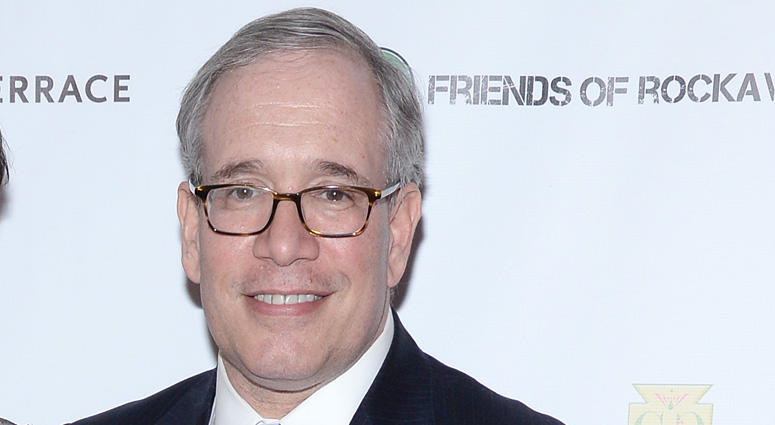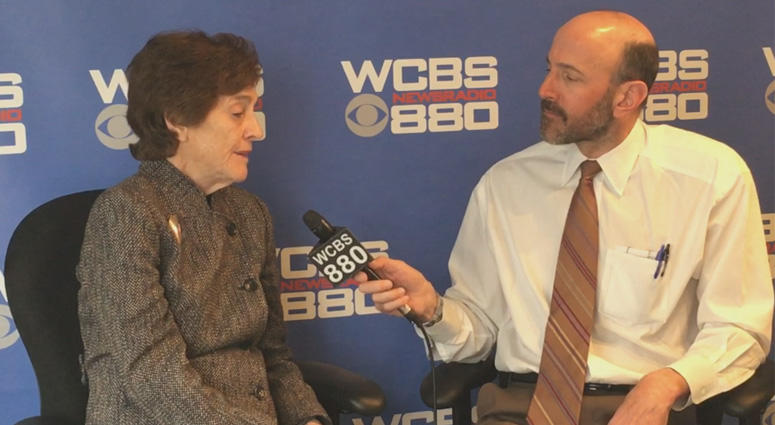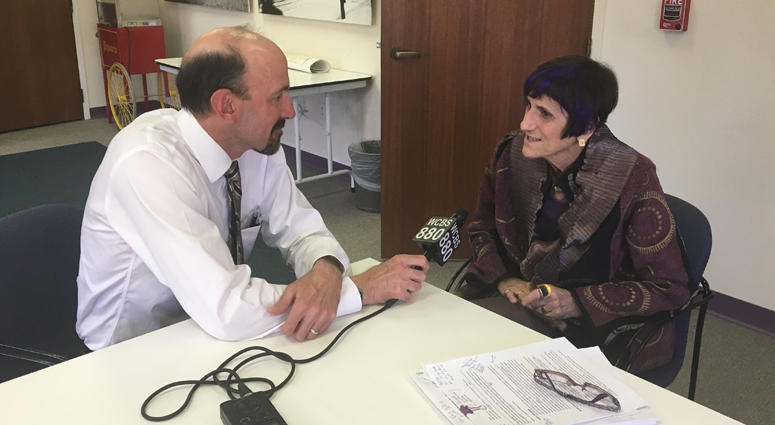
-
The New Wave: Women in Politics and the Power of Social Media
Post Views: 1,243NEW YORK (WCBS 880) — It’s not that the rules are changing, but new technology is making it easier for political upstarts to run their campaigns. That’s one element helping a record number of female candidates seeking public office this year.
Getting out your political message is always about money. But a new dynamic is helping fuel first time and often unknown candidates.
“What we learn is that social media can be an incredibly powerful, leveling force. And it can level the playing field for people who heretofore haven’t had a voice in politics and may not have the resources to get their voices heard,” said Brigid Harrison, who teaches political science at Montclair State University.
Debbie Walsh sees this benefiting all newcomers, but especially the new wave of women candidates. There are Facebook groups, Twitter trends and other rapid fire connections.
“I think social media is playing a role in this. I feel there is a connection among women that they just didn’t have in the early 90s. A way of a kind of a constant level of communication that I think will help keep this momentum going,” said Walsh, who heads the Center for American Women and Politics at Rutgers.
Former New Jersey Lt. Gov. Kim Guadagno thinks this is especially important in reaching younger voters.
“Tweeting it, instagramming it and whatever else the newest fad is, it’s all good for millennials. And if they’re brought up in that generation — you saw some of it I think with the shooting quite frankly. They’ve been empowered, the kids understand that they have the power to change outcomes,” Guadagno said.
The Parkland high school students in Florida have shown themselves to be a political force.
“The Parkland incident was a catalyst moment where we saw this surge of youth activism which then inspired more adult activism,” said Mark Barden, who co-founded the gun violence prevention group Sandy Hook Promise after his 7-year old son Daniel was killed in the 2012 Newtown school shooting. “They’re interacting with elected officials and folks at the grassroots level alike. It’s kind of a level playing field, and they are doing some great work and raising awareness like we’ve never seen before.”
The lessons from those students are transferable to politics.
“What happened in Parkland is kind of showing itself as a roadmap for public activism and that it’s not difficult and it’s not as polraizing or divisive as some folks would like you to think it is,” Barden said.
Following the shooting, Parkland shooting survivor Emma Gonzalez, who became an activist and advocate for gun control, received more Twitter followers than the NRA. Harrison said social media is a powerful tool that can level the playing and create an equal voice among participants.
“At the end of the day for some Congressional candidates they’re going to be able to use social media incredibly adeptly whether they’re male or female and use that as a potential source of power,” Harrison said. “I think it’s disingenous to say that this is how every woman candidate who is running is going to succeed because we have some very traditional women running, we have people running in districts where social media usage is not on par as it is with other places and so it is one tool in the toolbox and I think it’s a really important one particularly young candidates and for young social activists who are mobilizing other people like them but if you’re trying to get the 65-plus vote out in your district maybe Instagram isn’t the best way of doing that.”
Congresswoman Rosa DeLauro (D-Conn.) thinks this energetic, youth-fueled movement will make a difference.
“We follow their lead or get out of their way. They are moving,” DeLauro said.
Neil A. Carousso produced WCBS Newsradio 880 reporter Peter Haskell’s multi-platform series titled “The New Wave: Women in Politics.” See the video piece of this installment here.
-
Proud Air Force Vet of 4 Decades Pays Lifelong Homage to the American Flag
Post Views: 1,317By Neil A. Carousso, Special to ConnectingVets.com and WCBS Newsradio 880
VALLEY STREAM, N.Y. — Whenever James Cunningham sees the American flag, he salutes.
Cunningham is a retired senior master sergeant with the U.S. Air Force. His 41 years of service to our nation spans active duty and Air National Guard service.
“I know the history of our country, I know what went into the first flag when it came up, and it’s always been a symbol of our country and the way that we live and I’m proud to be part of that,” Cunningham said.
Congress authorized the United States Flag on June 14, 1777, which is now observed as Flag Day.
The flag was first flown during the American Revolution at Fort Stanwix, on the site of the present city of Rome, New York, on August 3, 1777. It was first under fire for three days later in the Battle of Oriskany.
“I’ve seen a lot of flags and a lot of people who are as proud as I am and I see by the way they display it,” Cunningham said.
When the American Flag is not displayed “properly,” Cunningham politely speaks up because presentation of the flag is essential to the veteran as a representation of our republic.
Recently, Cunningham was going into a restaurant when he noticed the flag on a home next door was “disreputable” because it was in “tatters.”
“When I left the restaurant, I stopped and I rang the doorbell and the homeowner came to the door and I said, ‘Ma’am, I’m sorry to bother you, but I’ve noticed that flag flying there, but it really isn’t a good idea to keep it up the way it is because it’s torn,’” Cunningham said.
Cunningham told the woman that she was “embarrassing” herself by displaying the American flag in such a poor condition. “You’re not giving it the proper respect,” Mr. Cunningham recalled telling her.
She told him that she had a new flag, but she was unable to replace it herself, so Mr. Cunningham put it up for her, replacing the old flag and giving the ripped flag a proper retirement.
“I told her, ‘You can be proud of that flag now and I’m proud that I was able to help you with that,’” Cunningham recalled, with a smile on his face.
When Mr. Cunningham walks in parades with the Knights of Columbus, he marvels at the American flag and salutes the 13 red and white stripes – representing the 13 British colonies that declared independence from Great Britain – and the 50 white stars on the sea of blue that symbolizes the 50 states.
Cunningham lights up when he spots the flag like the solar-powered landscape spotlight that shines on his flag at nighttime from the edge of the bushes on his manicured lawn.
“I salute when I come home,” said Cunningham, whose children used to tease him when they were younger, but now, they understand why he pays his respects to the flag.
As he gazed at Old Glory delicately waving in the breeze in front of his Valley Stream, Long Island home, as the sun set on a beautiful spring Friday evening, Mr. Cunningham turned his head slightly, so he could still see the flag, flashed a smile, and exclaimed, “I’m proud it’s my flag.”
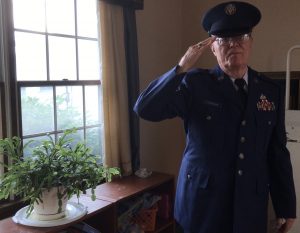
Ret. Sr. Master Sgt. James Cunningham proudly wears his uniform that still fits nearly 23 years after he was discharged. A Life of Service
Cunningham was discharged in July 1995 when he turned 60 years old. His tailor-made Air Force dress uniform still fits today at age 83; he proudly wore it in his Nassau County home, where he started a life with his late wife Mary, eight miles from where he was raised in Queens.
“I wish my wife were here to share this moment with me,” Cunningham said while visibly holding back tears. “We were married for 47 years, we didn’t quite make 50, but she was my inspiration, and as far as the service went, she was with me 100 percent.”
Mr. Cunningham has kept the last rose that was by Mary’s bedside when she passed 10 years ago. He keeps it in a tea cup with “Mary” inscribed in script. A blessing to Mr. Cunningham, the rose has not disintegrated. The rose and tea cup sit atop his living room fireplace adjacent to pictures of his loving family, including his eldest daughter who fell ill from a 9/11-related cancer as she worked on Wall Street and inhaled the smoke that engulfed Lower Manhattan.
Far from despondent, Cunningham is proud, especially of his country that has afforded him a sense of purpose, joy and gratitude. He keeps himself busy with the American Legion and Knights of Columbus organizations, while also serving as an extraordinary minister at the Church of the Blessed Sacrament, which is down the street from Cunningham’s home in Valley Stream.
“My service life endeared me for the rest of my life. It taught me things that came very handy in civilian life,” said Mr. Cunningham.
See more stories at ConnectingVets.com
-
Stringer: City is Chronically Late in Issuing Contracts, Putting Human Services in Jeopardy
Post Views: 1,255NEW YORK (WCBS 880) — New York City Comptroller Scott Stringer on Tuesday released a new report finding “pervasive” delays in the city’s contract system, particularly when it comes to human services.
The consequence, Stringer said, is that services for the homeless and other vulnerable New Yorkers are put in jeopardy.
“Thousands of nonprofits – many serving the most vulnerable New Yorkers – go unpaid for months, forced to deliver services without a registered contract. This is unacceptable,” Stringer told WCBS 880. “The very organizations that the most vulnerable New Yorkers depend on are being forced to take out huge loans, skip payroll, delaying repairs, just to deal with the shortfall in cash.”
Stringer’s report said 90.8 percent of human services contracts were submitted late for registration in Fiscal Year 2017 – half of them by six months or more. The report also said contract types across the board had extensive delays – with 81 percent of new and renewal contracts across all city agencies coming in late in FY 2017.
The report focused on Type 70 contracts, which support human services programs for seniors, children, the homeless, and other vulnerable populations. Stringer’s office found that some agencies – including the Human Resources Administration and the Department of Homeless Services – submitted all of their contracts late in 2017.
Vendors can only be paid once a contract is registered. They will be paid retroactively if a contract is late, but until the contract is submitted, the vendors are forced either to wait to begin work – which can stall projects and hike costs – or start work without the contract and take major risks, Stringer’s office said.
The stakes are particularly high for human services contractors, which execute such functions as delivering meals for seniors and providing shelter for homeless families, Stringer’s office said. The services are critical, and the contractors are often cash-strapped nonprofits with limited budgets, Stringer’s office said.
Stringer called for a series of reforms, including a contract tracking system.
“We need more transparency. We need to assign each city agency a role in contract oversight. We have to create a public tracking system to allow vendors to monitor the progress of their contracts,” he said. “It’s amazing that by the time it gets to my office, it could have been delayed for years.”
Stringer said if UPS can track packages, there is no reason that the city cannot track human services contracts.
“This is bureaucracy at its worst, and we have to smash the bureaucracy,” Stringer said, “and we’re never going to reduce homelessness if we cannot have a Department of Homeless Service agency that registers contracts on time and on budget.”
Speaking to WCBS 880 Producer Neil A. Carousso, Stringer added that his office has been in communication with Mayor Bill de Blasio’s office for “many years” about the late contract issue. When asked if de Blasio has an action plan in place, Stringer said, “Well, we’ll find out now.”
-
The New Wave: The Challenge of Getting More Women Elected
Post Views: 1,294NEW YORK (WCBS 880) — The number of women serving in Congress and other elected positions has grown dramatically over the years, but many say progress is taking too long.
In this week’s segment of The New Wave: Women in Politics, Peter Haskell looks at calls to get more women elected to office.
When Liz Holtzman was first elected to Congress in 1972, she was one of 16 women in the House of Representatives. In the Senate, there were none at all.
Thus, Congress was just 3 percent female.
But 45 years later, there are 107 women in Congress – 20 percent.
“We’re making progress, but too slow in my opinion, and with a lot of damage to the whole society,” Hotlzman said, “because we’re losing out on the talents of extraordinary women.”
Despite the record number of women candidates, Holtzman, 76, understands the process is incremental.
“You know, it may take another 20 years before we get halfway or more, but the fact is, ultimately, progress in this is just not stoppable. It’s going to happen,” she said. “Unfortunately, it’s taking far too long. But there’s no way of stopping the progress that women make.”
Political science professor Brigid Harrison of Montclair State University thinks the timing is right.
“With the large number of retirements, what we see is that this will be an opportunity for many women to get that foot in the door, and become the incumbents that are so hard to beat,” Harrison said.
Former New Jersey Gov. Christie Whitman said it is about more than just numbers. It is about governing.
“You need more women and you need more minorities at the decision-making table, because you need that different set of life experiences; a different way of approaching problems,” Whitman said. “You can’t, in today’s day and age, there’s no one group that has all the answers.”
Another issue is misconduct. Former New York state Attorney General Eric Schneiderman resigned after being accused of dating abuse.
Assemblywoman Nicole Malliotakis, who ran for New York City mayor, said it matters.
“You know, there’s an attractiveness about a female candidate, and I think it’s because men seem to get themselves in trouble, you know, whether it’s sex scandals, whether it’s corruption,” Malliotakis said.
But more women running also means more women losing. Nearly 90 female candidates have already lost congressional primaries.
Neil A. Carousso produced WCBS Newsradio 880 reporter Peter Haskell’s multi-platform series titled “The New Wave: Women in Politics.” See the video piece of this installment here.
-
The New Wave: Stereotypes, Prejudices and Other Challenges for Women In Politics
Post Views: 1,294NEW YORK (WCBS 880) — With a record number of female candidates, there is talk of this being the year of the woman. But progress has been slow.
In this week’s segment of The New Wave: Women In Politics, Peter Haskell looks at the challenges women have faced in getting elected.
“We live in a world, in a culture where sexism exists,” said former New York City Council Speaker Melissa Mark-Viverito, who has seen the challenges firsthand.
Sometimes the bias is about looks, and other times it’s about knowledge.
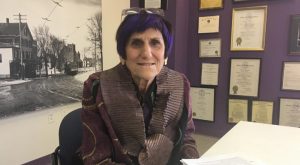
Rep. Rosa DeLauro (D-CT) (Peter Haskell/WCBS 880) Rep. Rosa DeLauro, D-Conn., remembers testifying about a big defense contractor in her district.
“I finished my testimony and Congressman Lewis from California he said to me, ‘Congresswoman DeLauro, can you talk about the M1-A1 tank and the engine without looking at your notes?’ and I turned to him and I said, ‘Damn straight I can,'” she said.
“What do you make of that?” Haskell asked.
“It was just about women don’t deal with the defense industy,” DeLauro said.
She says there’s a continuing double standard.
“Women have to work harder still today. A lot of my male colleagues can stand up, and say whatever they want. They can drool on the floor of the House of Representatives and it doesn’t make any difference. Women have to know what they are talking about,” DeLauro said.
Part of the problem has been the old boys network.
“Women are far less likely to get asked to run for office by party officials, elected officials, influential community leaders,” said Jean Sinzdak, deputy director of the Center for American Women and Politics at Rutgers.
Former New Jersey Gov. Christie Whitman points to a problematic perception.
“Women will always be looked on as primary caregivers — whether it’s for children, spouses, significant others, parents it doesn’t matter. And that has engendered this idea that somehow you can’t do that and still be effective at your job, which is just simply not true,” Whitman said.
Former New Jersey Lt. Gov. Kim Guadagno said when she was running for the Monmouth County sheriff’s office, she was asked, “How are you going to run a jail and run a law enforcement agency when you have three children?”
“They wouldn’t ask a man that question. They would assume a man wouild be able to do it and have children,” Guadagno said. “And my answer was: ‘The same way you do. You have a family, you have a very supportive spouse, you have help and you raise your kids.'”
Liz Holtzman, a former congresswoman and former Brooklyn district attorney, said prejudices and stereotypes are still standing in the way of women.
“There are stereotypes out there that women can’t do certain kinds of jobs, particularly executive jobs. Those stereotypes are very hard to eradicate,” Holtzman said. “We made a lot of progress. When I was first elected and took office in 1973, there was no woman on the Supreme Court; there’d been no women of any prominence holding the top cabinet positions; women weren’t heads of symphonies or univerisities. We’ve seen that change.”
Although progress has been made, Holtzman said the country still has a long way to go.
“The basic attitude is still too pervasive that women can’t do this job and women can do the job and women will do the job,” she said. “I think there’s a long way to go, and I’m very troubled and a bit disheartened by the lack of progress we’ve made in terms of changing people’s attitudes about the role of women in society.”
But Brigid Harrison, who teaches political science at Montclair State University, said she is seeing some improvements.
“Women, compared to say 20 or 30 years ago, have larger professional networks. They have more net worth and so they’re better able to fund their campaigns. They’re better able to have connections to fund their campaigns,” Harrison said.
However, there are still plenty of obstacles. Harrison said one of the greatest challenges is how congressional districts are configured.
“Twenty years ago, it may have been possible to primary an incumbent member or it may have been possible to run in a competitve district and knock off an unpopular incumbent. Today, given the sophisticated way in which mapmakers create our congressional districts — and that’s done on the state level — in about 90 percent of the seats, of Congress the winner is predetermined simply because of the partisan advantage in that district,” Harrison said. “That’s an incredible obstacle for women who are not incumbents to overcome.”
Not to be ignored is the power of incumbency. House incumbents win 95 percent of the time. If women pick up seats this year, that could help generate momentum going forward.
Neil A. Carousso produced WCBS Newsradio 880 reporter Peter Haskell’s multi-platform series titled “The New Wave: Women in Politics.” See the video piece of this installment here.
Interview
Social Feeds

VIDEO: Told the airline to book us on the next flight out (SPONTANEOUS TRIP!)

VIDEO: The Taylor Swift Effect | WCBS Business Breakfast

VIDEO: Future of NYC | WCBS Business Breakfast

VIDEO: Reasons for New Yorkers to be Optimistic | WCBS Business Breakfast

VIDEO: NYC's AI Chatbot | WCBS Business Breakfast



